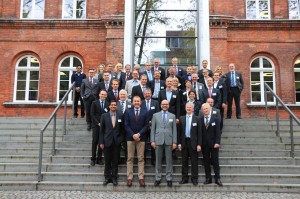Ein neues Arbeitspapier von Cornelius Herstatt und Rajnish Tiwari setzt sich mit der Frage der wissenschaftlichen Einordnung des Begriffs “frugale Innovation” auseinander. Zielsetzung des vorliegenden Beitrags ist es, frugale Innovation einzuordnen und von anderen, verwandten Innovations-Konzepten (“Jugaad”, “Bottom of the Pyramid” und “Reverse Innovation”) abzugrenzen. Die Autoren schlagen einen Katalog von Bestimmungsfaktoren für frugale Innovation vor. Die Bestimmungsfaktoren werden anhand von Beispielen erläutert. Ferner gehen die Autoren auf ausgewählte betriebswirtschaftliche Instrumente (Wertanalyse, Target Costing, innovative Analogien) ein, die bei der Realisierung von frugaler Innovation genutzt werden können.
Details: Working Paper 88 (Institut für Technologie- und Innovationsmanagement der TU Hamburg-Harburg / PDF, ca. 640 KB)
Abstract

